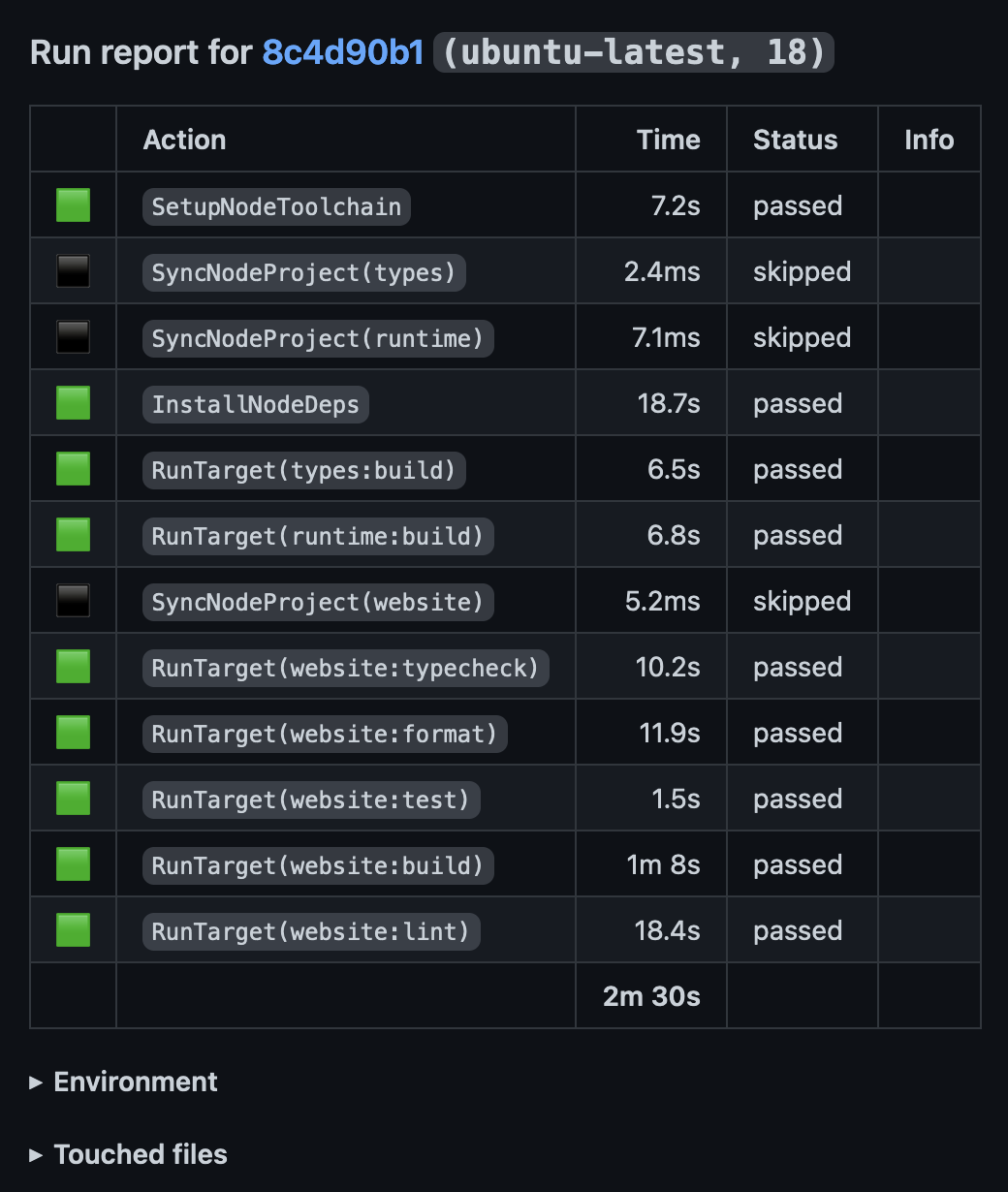Documentation is currently for moon v2 and latest proto. Documentation for moon v1 has been frozen and can be found here.
Open source usage
Although moon was designed for large monorepos, it can also be used for open source projects, especially when coupled with our built-in continuous integration support.
However, a pain point with moon is that it has an explicitly configured version for each tool in the
toolchain, but open source projects typically need to run checks against
multiple versions! To mitigate this problem, you can set the matrix value as an environment
variable, in the format of MOON_<TOOLCHAIN>_VERSION.
name: 'Pipeline'
on:
push:
branches:
- 'master'
pull_request:
jobs:
ci:
name: 'CI'
runs-on: ${{ matrix.os }}
strategy:
matrix:
os: ['ubuntu-latest', 'windows-latest']
node-version: [20, 22, 24]
steps:
# Checkout repository
- uses: 'actions/checkout@v4'
with:
fetch-depth: 0
# Install Node.js
- uses: 'actions/setup-node@v6'
# Install dependencies
- run: 'yarn install --immutable'
# Run moon and affected tasks
- run: 'yarn moon ci'
env:
MOON_NODE_VERSION: ${{ matrix.node-version }}
This example is only for GitHub actions, but the same mechanism can be applied to other CI environments.
Reporting run results
We also suggest using our
moonrepo/run-report-action GitHub
action. This action will report the results of a moon ci run to a pull request
as a comment and workflow summary.
# ...
jobs:
ci:
name: 'CI'
runs-on: 'ubuntu-latest'
steps:
# ...
- run: 'yarn moon ci'
- uses: 'moonrepo/run-report-action@v1'
if: success() || failure()
with:
access-token: ${{ secrets.GITHUB_TOKEN }}
The report looks something like the following:
